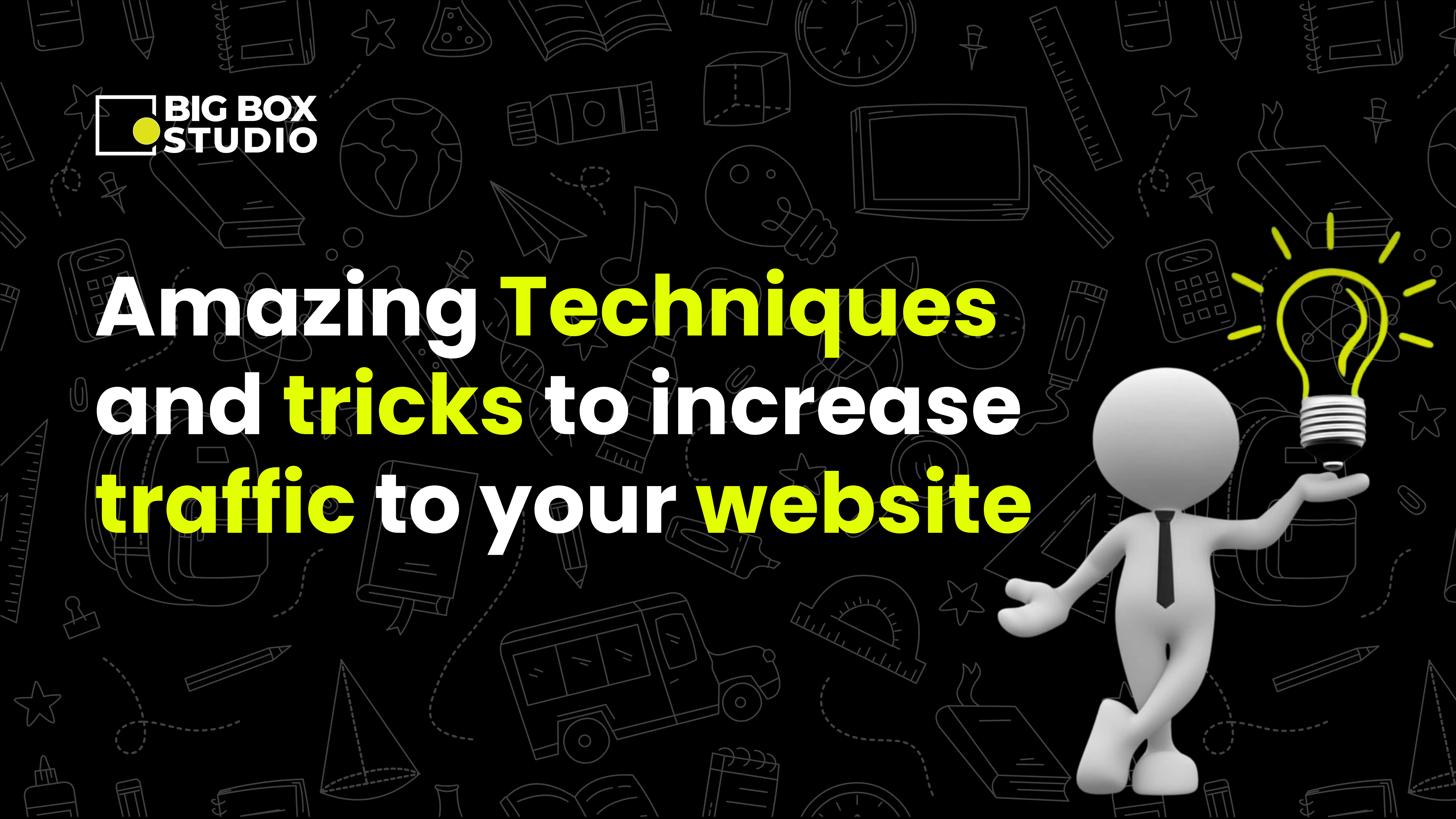Introduction:
In today’s digital landscape, attracting visitors to your website is not just a goal—it’s crucial. Whether you’re a blogger, running an online store, or managing a developing business, having more visitors translates to greater engagement, more leads, and higher conversion rates. But with countless websites vying for attention, how can you differentiate yourself? Here are some effective strategies to enhance traffic and elevate your online visibility.
Optimize Your Website for SEO
Search Engine Optimization (SEO) serves as the cornerstone of organic traffic. If your website lacks proper optimization, it’s akin to setting up a shop in a deserted area—nobody will discover you. Essential steps for effective SEO include:
– Keyword Research: Identify the phrases your potential audience searches for using tools such as Google Keyword Planner, SEMrush, or Ahrefs.
On-Page Optimization: Naturally incorporate keywords into your titles, headings, meta descriptions, and overall content.
– Site Speed: A website that loads quickly keeps users interested and ranks better in search results.
– Mobile-Friendly Design: Since most users browse on mobile devices, ensure your site looks appealing and operates smoothly across all platforms.
Create High-Quality, Valuable Content
Content reigns supreme—but not all content contributes to driving traffic. You need to provide material that educates, entertains, or addresses your audience’s concerns. Effective content ideas include:
– How-to guides and tutorials
– Insights and reports about industry trends
– Listicles and “Top 10” lists
– Case studies and success narratives
– Infographics and visual content
Remember, prioritize quality over quantity. A handful of thoroughly researched articles typically outperform numerous shallow pieces.
Leverage Social Media Platforms
Social media serves not just for engagement—it’s a potent source of traffic. Platforms like Facebook, Instagram, LinkedIn, Twitter, and Pinterest can funnel thousands of visitors to your site. Here are some effective tactics:
– Share your content with eye-catching headlines and visuals.
– Keep a regular posting routine to stay in the minds of your audience.
-Take advantage of features that are unique to each platform, such as Instagram Reels, articles on LinkedIn, or pins on Pinterest.
Utilize Email Marketing
Email marketing continues to be one of the most cost-effective approaches to drive traffic. A well-designed email can bring readers back to your website time and again. Here’s how to make email work for you:
-Develop a focused email list by using opt-in forms.
– Send out newsletters featuring updates, tips, or exclusive offers.
– Clearly include call-to-actions (CTAs) that link back to your website.
Collaborate with Influencers and Industry Experts
Influencer marketing has evolved beyond just big brands. Joining forces with industry specialists or influencers can enhance your website’s credibility and expose it to a larger audience. Here are some collaboration ideas:
– Guest posts on influencer blogs that link back to your site
– Joint webinars or podcasts
– Social media shoutouts and collaborations on content
Use Paid Advertising Strategically
While organic traffic is fantastic, paid campaigns can provide a quick traffic surge. Platforms like Google Ads, Facebook Ads, and Instagram Ads allow you to target specific audiences effectively. Here are some tips for running successful paid campaigns:
– Start small with your budget and experiment with different ad creatives.
– Utilize retargeting ads to re-engage users who visited but didn’t convert.
– Focus on optimizing landing pages for conversions rather than just clicks.
Implement Internal Linking and Backlinks
Internal linking not only helps visitors navigate your website but also enhances SEO by distributing link equity. Linking to relevant content keeps users engaged for longer and lowers bounce rates. Backlinks from reputable sites signal authority to search engines, thereby boosting your rankings and driving referral traffic.
Optimize for Voice Search
As smart speakers and voice assistants become more common, optimizing for voice search is essential. People tend to use conversational phrases, so tailor your content to fit that style. Here are some tips for voice search optimization:
– Use natural language and long-tail keywords.
– Include FAQs and question-based content.
– Ensure your website loads quickly and is mobile-friendly.
Improve User Experience (UX)
A seamless and enjoyable experience encourages visitors to return and reduces bounce rates. Google also prioritizes websites that provide excellent UX, which can enhance search rankings and traffic. Key focus areas include:
– Simple and intuitive navigation.
– Clear calls-to-action (CTAs).
– Fast-loading pages.
– Mobile optimization.
– Visually appealing design.
Regularly Analyze and Adapt
Traffic strategies aren’t one-size-fits-all. Employ tools like Google Analytics, Search Console, and social media insights to understand what works best. Here are some steps to analyze your strategies:
– Track page views, bounce rates, and session duration.
– Monitor referral traffic from social media, emails, and backlinks.
– Identify high-performing content and replicate its success.
– Adjust strategies that aren’t performing well through A/B testing.
Conclusion:
Boosting website traffic requires a multi-faceted approach. By integrating SEO, quality content, social media, email marketing, collaborations with influencers, paid ads, backlinks, voice search optimization, and UX improvements, you can achieve sustainable growth. The secret lies in consistency, creativity, and diligent monitoring of your results. By implementing these strategies and techniques, you’ll not only enhance traffic but also engage your audience, establish authority, and drive meaningful conversions.
FAQ’S
1. How long does it take to see results from SEO?
SEO is a long-term game. Usually, you start seeing noticeable improvements in 3–6 months, depending on your industry, competition, and the consistency of your efforts.
2. Does social media really help in driving website traffic?
Absolutely! Social media platforms act as discovery engines. Sharing engaging content, using trending hashtags, and collaborating with influencers can drive a significant amount of traffic to your website.
3. Should I focus more on paid ads or organic traffic?
Both have their benefits. Paid ads bring quick traffic, while organic methods like SEO and content marketing provide sustainable, long-term results. A smart mix often works best.
4. How important is website speed in attracting traffic?
Very important! A slow website can frustrate visitors and hurt your Google rankings. A fast, mobile-friendly site keeps users engaged and boosts traffic.
5. Can blogging really help increase my website visitors?
Yes, blogging is one of the most effective ways to attract visitors. Each blog post is an opportunity to rank on search engines, answer customer queries, and bring new traffic to your site.1.

